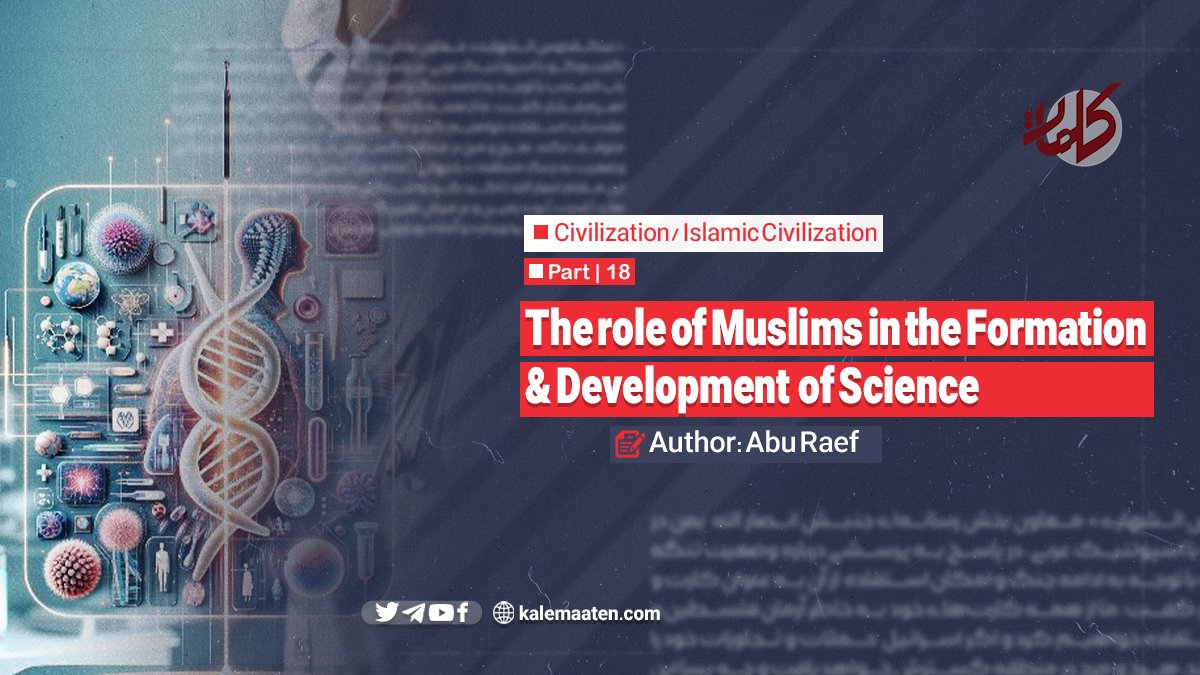Author: Abu Raef
The Role of Muslims in the Formation and Development of Sciences (Part 18)
The Role of Muslims in the Treatment of Women’s Diseases
One of the important areas in which Muslim physicians have played a fundamental role is in the field of women’s medicine. In this area, the study and analysis of various women’s diseases, infertility problems, and childbirth management have been among the topics that Muslim scientists have addressed.
Muslims have conducted research and made innovations in topics such as menstrual disorders, the anatomy of the uterus and related diseases, infertility and childlessness, women’s gastrointestinal diseases, fetal expulsion methods, cesarean delivery, uterine expansion relative to fetal size, false pregnancies and ectopic pregnancies, and many other topics.
One notable area has been surgeries related to women’s health. In this regard, the relentless efforts of Muslim physicians are commendable. Examples of these activities include:
1. Female circumcision: Although female circumcision is not obligatory from an Islamic perspective, it has been practiced in some regions and countries, even among non-Muslims. Consequently, Muslims have not widely addressed this issue. However, some Islamic physicians have discussed it and proposed solutions.
Imam Zahrawi, a famous Islamic physician, writes: “When the clitoris becomes larger than normal, hard, or unsightly, which occurs in some women, it is better to carefully excise the excess part. Care should be taken that the incision is not deep to prevent bleeding. The area should then be treated with appropriate surgical methods.” [1]
2. Treatment of “Rataq” disease: “Rataq” disease is a condition affecting the uterus that prevents intercourse or pregnancy. Muslim physicians have proposed solutions for treating this condition. Imam Razi states: “Rataq can be either congenital or acquired. If the cervix is closed and blocked by something like a muscle, the man will not be able to engage in intercourse, and the woman will not menstruate or conceive. If this tissue grows in the vagina, intercourse may be possible, but pregnancy will not occur.” [2] Avicenna also researched this disease and provided insights and treatments.
3. Issues of bisexuality: Muslim physicians have researched and explained the conditions associated with bisexuality and its various types.
4. Uterine hemorrhoids: Muslim physicians, such as Imam Razi, have discussed uterine hemorrhoids, noting: “This blood is expelled with pain and is different from menstrual bleeding.”[3]
5. Uterine warts: Avicenna addressed uterine warts, their impact on women’s health, and their potential spread to other parts of the body. Imam al-Zahrawi suggested cauterization of the cervix as a treatment. He also differentiated between uterine inversion and uterine prolapse, which Imam al-Razi discussed as well.[4]
6. Abnormal uterine discharge: Muslim physicians have provided specific solutions for addressing substances expelled from the uterus. Imam al-Zahrawi discusses this in detail in his book, Tasrif.[5]
7. Uterine tumors and cancer treatment: This area has received significant attention from Muslim physicians such as Imam al-Razi, Imam al-Zahrawi, Ibn Sina, and Majusi. Some scholars even credit Ibn Sina as the first to comprehensively address uterine tumors.[6]
8. Surgery for fetal removal: Muslim physicians also performed surgeries to remove dead fetuses from the mother’s womb. Using their surgical skills, they managed to remove fetuses that had died in utero. In cases where the mother was deceased, they would operate on her abdomen before her death spread to the child, thereby attempting to save the fetus. These actions reflect the profound care Muslims had for preserving the life of the child in critical situations.
Caring for Women from Pregnancy to Childbirth
Muslim physicians placed special emphasis on the health and needs of pregnant women and the condition of the fetus. They discussed the ideal circumstances for women to conceive. Characteristics considered suitable for women who wish to become pregnant include:
– Moderate temperament,
– Avoidance of excessive thinness or obesity,
– At least fifteen years of age,
– Reasonable intellect,
– Proportionate abdomen and sides,
– Regular menstruation.
Islamic physicians identified various signs of pregnancy, including cessation of menstrual bleeding, cravings for unusual substances like dirt, increased salivation, nausea, stomach pain, and choking sensations.
Preventing Miscarriage
Muslim physicians also focused on preventing miscarriages and supporting pregnant women in safeguarding the health of the fetus. Imam Razi noted: “Miscarriages may occur due to conditions such as convulsions, epilepsy, malnutrition, uterine dilation, the presence of air in the cervix, cancer, or uterine injuries.”
Signs of Impending Labor
Muslim physicians and midwives meticulously studied the signs of impending labor, which include:
– Heaviness in the abdomen and flanks,
– Descent of the uterus detectable by the midwife,
– Increased and recurrent bleeding,
– Discharge of fluid from certain areas, followed by the release of blood in a slippery form.
Many aspects related to childbirth and its symptoms were specialized knowledge for midwives, who played a crucial role in recognizing signs of approaching labor and managing the birthing process.[7]
Continues…
[1] Zahrawi, Abu al-Qasim Khalaf Ibn Abbas, Al-Tasrif Laman Ujaz an al-Taalif, p. 113, Lucknow, India.
[2] Mahmoud al-Hajj, Qasim, Obstetrics and Gynecology in Arabic Islamic Medicine, p. 51, 1st edition, Mosul, Dar Mashki, Iraq.
[3] Same source.
[4] Al-Tasrif Laman Ujaz an al-Talifi, p. 113.
[5] Same source.
[6] Obstetrics and Gynecology in Islamic Arab Medicine, p. 57.
[7] Gynecological Diseases and Obstetrics in Arabic and Islamic Medicine, pp. 67-70.



